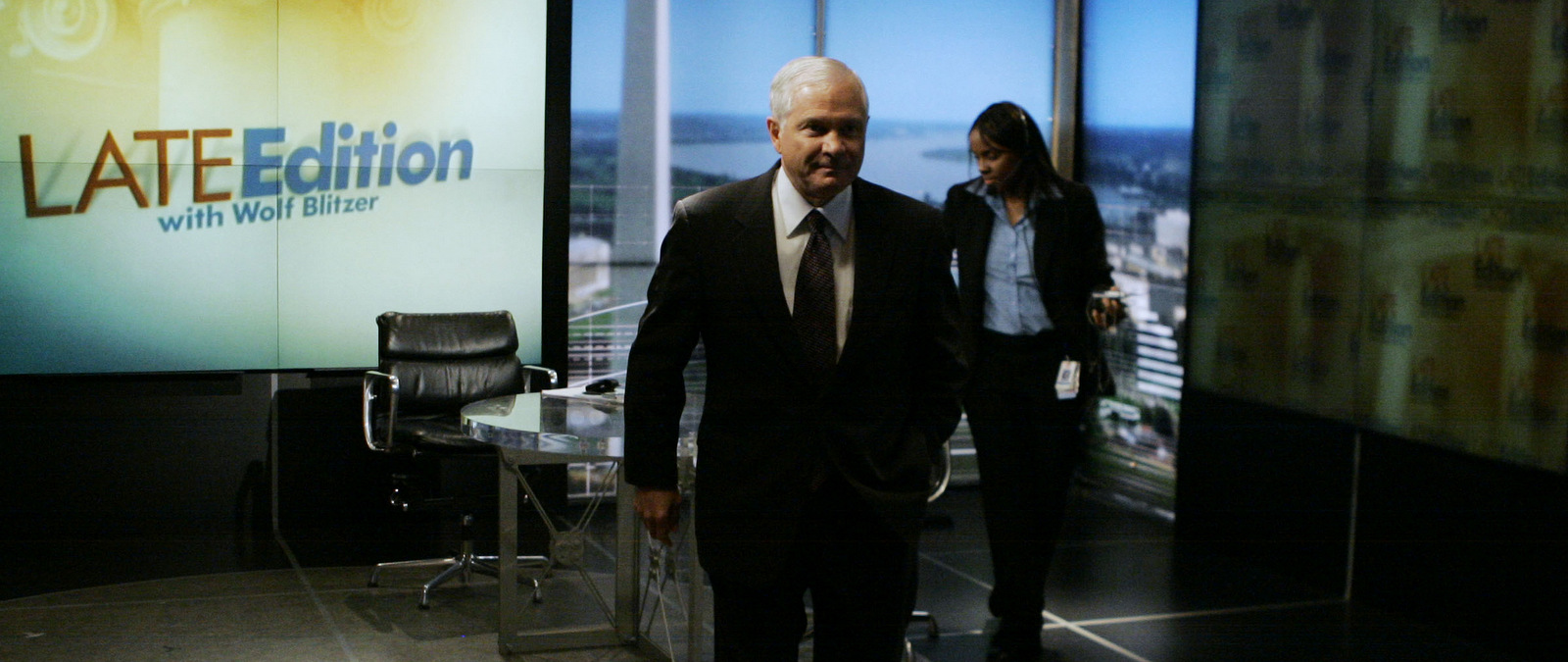Opinion — Ever wonder how the television, radio and newspaper people select whom they are going to interview or get quotes from when they are reporting the news or producing a feature? I do. What I’ve learned is that they go to guests that are connected with the established powers—such as think tanks in Washington, D.C. that work on “the military-industrial complex” policy (to borrow President Eisenhower’s words) and somehow lean toward more warmongering (e.g. NPR and the U.S.-Iran relationship) or backing more weapon systems (such as a new nuclear bomb arsenal and more F-35s and aircraft carriers).
You won’t be hearing from MIT Professor Emeritus Ted Postal on the chronic failures of the anti-ballistic missile program (spending $13 billion this coming year).
Whether it is NPR, PBS, the network news programs, the Sunday news interview shows and too often the New York Times, Washington Post, Associated Press and the Wall Street Journal their interviewees are the defenders of the status quo or those with corporatists’ viewpoints.
These news outlets seem oblivious to the blatant economic conflicts of interest inherent in groups such as the Heritage Foundation, the American Enterprise Institute and professors who moonlight with corporations. These interviewees have economic and ideological axes to grind that are not disclosed to the general viewers, listeners and readers, when they are merely described as “experts.”
There are real experts and specialists, with no axe to grind, who are so ignored by the media that they have almost become nonpersons, despite their past proven records of achievements for the public interest, and for the people’s well-being.
Here are some examples of experienced people whose veracity and honesty you can take to the press and media outlets:
David Freeman, probably the most knowledgeable, experienced authority on energy in the United States. A lawyer and engineer, he was an advisor to Presidents, Governors, ran four major utilities, including the giant Tennessee Valley Authority. He was also the author of key studies on energy policies starting in the nineteen seventies and presently is negotiating the shutdown of California’s last atomic energy plant with its owner, Pacific Gas and Electric Corporation.
Nicholas Johnson, former FCC Commissioner, author of many books and timely commentaries on communications subjects (e.g. “How to Talk Back to Your TV Set”) and has been teaching at the University of Iowa Law School.
Karen Ferguson, head of Pension Rights Center since the mid-seventies, has been involved in Congressional policies, judicial decisions, organizing retirees to assert their rights and generally watchdogging the increasing pension crisis in our country.
Jamie Love, the expert on drug patent abuses, drug industry pricing power, international efforts to counteract these “pay or die” policies. He has been a major figure in bringing down the price of AIDS drugs for developing countries.
Rena Steinzor, law professor, author of books such as Why Not Jail?, organizer of the Center for Progressive Reform and corporate crime specialist.
Janine Jackson, long-time media critic documenting weekly noteworthy bias, censorship and commercial distortion of the news.
Danielle Brian, director of the Project on Government Oversight has had much to say accurately about the massive military budget, redundant weapon systems and their waste, fraud and abuse over three decades.
Jesselyn Radack, former Justice Department lawyer, represents whistleblowers on national security wrongdoing and is an acknowledged legal expert on free speech in these sensitive areas.
Greg LeRoy, directs Good Jobs First and knows a great deal about corporate welfare, giveaways to sports stadiums, Amazon and the whole ‘business development’ subsidies at the local and state level in the U.S. He is the author, among other publications, of The Great American Jobs Scam: Corporate Tax Dodging and the Myth of Job Creation.
Mark Green, one of the nation’s experts on campaign finance rackets and reform, author of over twenty books, including Losing Our Democracy, and experienced as a candidate in New York State elections.
Ralf Hotchkiss, former MacArthur Genius awardee, inventor and founder of Whirlwind Wheelchair and a successful advocate for people with disabilities having mobility without having to pay monopoly prices for shoddy wheelchairs in the U.S. and developing countries.
Lois Gibbs, coming out of the Love Canal tragedies in Niagara Falls, NY, she organized arguably the leading grassroots movements against the poisoning of neighborhoods around the country. She is an accomplished author, a speaker and is the director of the Center for Health, Environment and Justice, which works with hundreds of local citizen fighters for health and safety.
Some of the above were featured in the mass media years ago; others have been relegated to the shadows of our public news and features for almost their entire careers. The slanted selections by media gatekeepers are getting worse. Increasingly, TV and radio anchors interview their own reporters, not experts like Robert McIntyre, lawyer and founder of the highly regarded Citizens for Tax Justice. Too often the Sunday network TV political shows tap into the same stable of Washington pundits and commentators.
Readers and viewers can make their own lists of media-excluded, knowledgeable persons, be they at the local, state or national levels. On our public airwaves, after the FCC repealed the “Fairness Doctrine” in 1987, bloviators such as Rush Limbaugh, Sean Hannity and Mark Levin, completely dominate our airtime with their corporatist and hate-filled soliloquies. These “champions” of the free market have no problem using the public airwaves free of charge. As owners of the public airwaves and buyers of print journalism, let’s demand higher standards for experts in journalism. Let’s demand that the media seek out people who know their facts and work in the people’s interest and give them airtime.
Top Photo | Then Secretary of Defense Robert M. Gates walks off the set after appearing for a taping of CNN’s Late Edition with Wolf Blitzer, where he discussed the Iraq War, Aug. 5, 2007, in Washington. (AP/Haraz N. Ghanbari)


